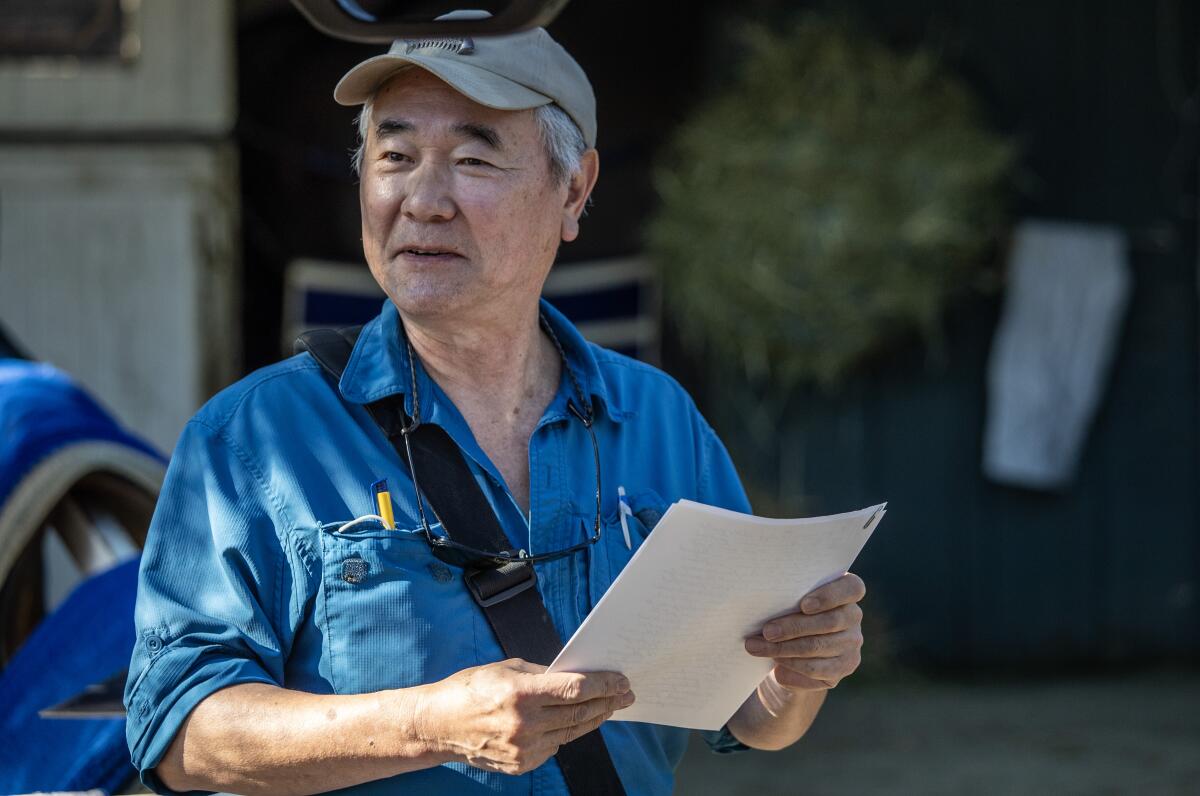Letters to the Editor: Readers moved by L.A. Times historian’s letters on Japanese American incarceration

- Share via
To the editor: I wept while reading Darrell Kunitomi’s article about his uncle and the inhumanity perpetrated by the U.S. government upon Japanese Americans forced needlessly into America’s concentration camps during World War II.
Despite the indignities of daily life at Santa Anita Park, where Japanese Americans were held before being sent to faraway incarceration camps, his uncle, Private First Class Ted Fujioka, lies buried in France, having given the ultimate sacrifice for the country that did such great harm to his family and his community. He was one of about 800 Japanese Americans who died in action while serving their country.
The letters Kunitomi has from his uncle during his time at Santa Anita are a treasure for the honest stories they tell, and for Ted’s hopefulness for the American ideals that continue to be defiled on a regular basis.
Kay Ochi, Chula Vista
..
To the editor: Kunitomi’s mother was my 5th and 6th grade teacher at Los Feliz Elementary School. Richard Nixon had just started his second term as president.
We started our day reciting the Pledge of Allegiance. Mrs. Kunitomi, an elegant lady with a strong singing voice, would then lead us in a rousing patriotic song while playing her autoharp. “You’re a Grand Old Flag” was a favorite.
Those years, history lessons were spent on Father Junipero Serra’s mission system. We also studied Hawaii and its eventual statehood. We had a lovely luau class party where Mrs. Kunitomi sang.
Little did we know that living, breathing, true history — most of it unfair, discriminatory and hurtful — was standing and singing right in front of us.
Mrs. Kunitomi did not speak in class about the incarceration of her family and those of so many other Japanese Americans, nor did she tell of her late brother, Teddy, a heroic member of the fabled 442 Army regiment.
I wish she had. I’m glad her son did.
Peter McDonald, Los Feliz
..
To the editor: Kunitomi does an excellent job showing some local details of the terrible years of Japanese American mass incarceration.
Thank goodness the victims were still allowed to send and receive mail, as Kunitomi’s uncle did. The letters he sent to his history teacher really reveal day-to-day activities behind the fence.
In retrospect, does anyone believe the knee-jerk reaction that imprisoned so many citizens starting in 1942 was effective in any way? I hope modern leaders have cooler heads.
And, thanks for placing Kunitomi’s piece on the front page.
Greg Golden, Van Nuys




